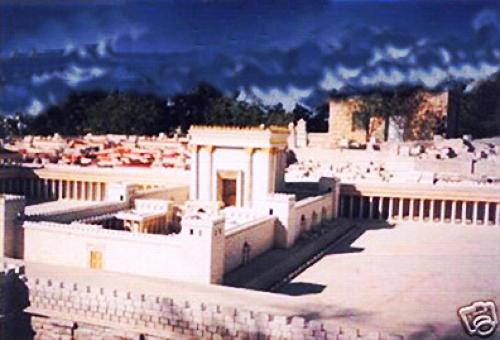A Modern Rose By Any Other Name

Who Is A Palestinian?
One of the most common misunderstandings of our time is the reference to a specific race or population of people as being Palestinian. For it has become foremost in our minds to believe that a Palestinian is one of Arab descent and descended from a continuous line of ancestors that have always made Palestine their home. Is this not what we are told? Is this not the essence by which a Palestinian State is justified and accepted as truth by our various respected world governments? Is this not what Obama says and he would not lie to us? How else do we explain the existence of a people with a heritage, a common history, and a national identity? Or is this all just part of the myth and lore that essentially has become part of the fiction of the Middle East that we have come to accept as both accurate and truthful.
There in lies our problem for as human nature has clearly demonstrated, we will readily accept information, no matter how shaky its credibility or foundation as being verifiable. But verification requires work, effort, and time. Better to let someone else do that since we have so little time in our hectic lives, and so, we surround ourselves with half-truths, legends, and fables which we adopt as accurate knowledge. Such is the case with the term ‘Palestinian.’ As Shakespeare wrote, “A rose by any other name would smell as sweet.” Except, that to call a rose a daffodil leaves us with the problem of how do we describe the scent of the daffodil? We have displaced the pristine beauty of one flower because we chose to identify the rose by an inaccurate name. How does this apply? Let me explain.
What we today think of being Palestinian is not what the world considered it as being for well over two millennia. So how did this misapplication arise? For those that have not done their own verification, the origin of the term is biblical. In the actual Hebrew, the term was Paleshtim, referring to the race of people that we know as Philistines. In the biblical land of Canaan, two populations were vying for entry and dominance at the same time. From the East, through Moab, came the Israelites, under the leadership of Joshua, and from the west came the Greeks, either as part of their own exodus from Crete, or as adventurers from the Aegean. My personal preference is to believe that they were predominantly of Cretan origin, escaping the remains of their once beautiful city of Knossus, which had been buried in part by the eruption of the island’s major volcano at about the same time that the Hebrew’s were slaves in Goshen. Being of Cretan origin rather than Peloponnesian would explain the biblical description of the Philistines as settlers and colonisers rather than portraying them as typical Aegean raiders and pillagers.
Settling the coastal plain, the Philistines established five cities, each ruled by a king as was the custom of city-states amongst the Greek world. These cities were called Gath, Ashdod, Ekron, Gaza, and Askalon. Now any individual of these five cities would be known as Paleshti to the Israelites, or in the vernacular of our own age, a Palestinian. The area in which these cities were located was referred to as the Eretz Paleshtim, or the land of the Palestinians. So the origins of the name Palestine is very old, in fact over three thousand years old. Equal in age to the reference of the Hebrew refugees from Egypt, first mentioned on the Stele of Pharaoh Merneptah as Israel; two people, invading one land, which was known to all at the time as Canaan. But there is no mistake; these first Palestinians were Greek and not Middle Easterners at all.
The battles between the Israelites and Philistines were numerous, the most famous of these involving Saul and David and recorded in the books of Samuel and Kings. But we also know of the events when the Ark of the Covenant fell into the hands of the Philistines, and the ongoing love-hate relationship that Samson shared with them. So long before there were Kings over the Jews, there was a building rivalry between these two people. We recognise that the Philistines with their chief god, Dagon or Poseidon, were the enemies God’s chosen people and as such, enemies of our Lord as well. They were neither to be revered nor emulated and the failure of successive generations of Kings in Israel and Judea to eliminate them as perpetual protagonists is primarily responsible for the name of their coastal strip of land surviving through all the successive empires that existed in the Middle East. To be from the Palestinian cities was to be held in contempt by those that were true believers in the Lord.
Under the Seleucid Empire of Syria, post Alexander the Great, the cities rose to prominence once again, as they shared a common heritage with the Greek civilisation that then dominated the Middle East. Not even the liberating armies of the Maccabees, who fought for freedom against the Seleucids could conquer that area which was now referred to as Palestine in the common language of the time. And as we read in the works of Josephus, this same Greek people of these five cities, contributed significantly through their efforts not only to spark the Jewish revolt against Rome, but also to the eventual conquest and destruction of Judea by the Romans between 66 and 70 AD. Yet, even after the destruction of the Temple by Titus, and the subsequent fall of Masada three years later, the areas inhabited predominantly by the Jews were still referred to as Judea, Idumea, and Galilee. Palestine was reserved only for that narrow coastal strip extending towards Egypt, as had been done so for over a thousand years.
So how did the confusion come about, whereby the established names of the three Jewish provinces (Samaria inhabited by a mixed Jewish population would be a fourth province if included) became supplanted by the name of this neighbouring Greek province. History does tell us how this occurred. Jewish history has always been about constant struggle; a civilization frequently teetering on the verge of extinction, only to rise and fight another day. Being dominated by Rome, the most powerful empire that had ever existed was no reason for this to change. Sixty years after the fall of Masada, the Jews of Judea and Galilee fought against the largest army that Rome had ever assembled in its civilized history against a single enemy, only to be summarily defeated after four years of horrific battle. This has become known as the Bar Kochba Revolt, and the severity of the fighting had crippled Rome to such an extent, that the Emperor Hadrian could not make the usual proclamation of victory that “the Army and Empire are well.” The devastation of the war, following on the heels of an earlier Jewish Revolt in Alexandria in 117 AD, forced the Senate to demand the severest punishment be extolled upon the Jewish populace throughout the empire. Hadrian ordered that the previously collected Temple Tax, which was diverted to Rome after the earlier conquest by the Flavians, and which Trajan, the previous emperor, had been considering to return in response to a request by the Jewish leadership to rebuild the temple in Jerusalem, was now and forever to be for the property of the Roman treasury. Thus was born the notorious Jew Tax, which would become the racist prerogative of kings and governments from then until the present. Next, Hadrian swore that the Jewish Temple would never be rebuilt. Instead, the site of the Holy of Holies would be converted into a trash heap and a new temple would be built on the mount dedicated to Jupiter. Jerusalem would no longer be called by its name since antiquity, but instead would be known as Aelia Capitola No Jew would be allowed to enter the vicinity of the temple mount, and in what may have been considered the severest punishment of all, the use of the term Judea would be expunged from the vocabulary of the Roman world. From then onwards, the land would be referred to as Palestine. It would encompass the entire area of the Jews, from the north to the south, east to west; a reprehensible term, signifying an end to the millennia old battle of the Greek world against the intransigence of the Jewish people. It was an open declaration to the world that the Greek and Roman pantheon of Olympian gods had finally defeated the monotheism of the Jews and their invisible God! Or so they believed.
We know that the enforcement of these policies was complete and strict as evidenced by the documents of the Beth Din (Council of Law and Court of Judgement), which the Judean leadership established to govern the province from places outside the Jerusalem vicinity, such as Beth Jammin. When these laws were incorporated into several volumes of text, to differentiate it from the Babylonian Talmud, which arose from a similar council set up by the Jewish Exilarch in Babylon, these volumes written in Judea was referred to as the Palestinian Talmud. That such a historic and religious document would be provided a prenomen of Palestinian, obviously meant that the Jews of the land had accepted the humiliation and redrawing of the maps of the Middle East in the Roman Empire. As the majority population within the land, then it would be obvious that reference to a Palestinian in the third century was synonymous with Jew. As if wearing a yellow badge in Nazi Germany, the Jews would bear the insult of the term until such time that they would rule again in their own lands.
The continuous inhabitation of the land by Jews for three thousand years, clearly establishes them as the indigenous population. Only recently has history been rewritten to try and claim otherwise, as well as to propose that the rose be now referred to as a daffodil. If the Jews had become those people referred to as Palestinians by an enactment of the Roman senate, then how is it that we have come to believe in a segment of the Arab population as being the one and only Palestinians? This is simply a case of those rewriting history once again of relying on human nature to remain unchanged and know that verification requires work, effort, and time, as I had mentioned previously, and most will simply not make the effort.
Let me quote for you the headline of The Evening Telegram, from Toronto, on Saturday, June 27th, 1936. It read, “Syrians Join Arab Threat Against Palestine.” Firstly, we must notice the date. Twelve years before the war of Israeli Independence. At this time there was no Arab refugee problem, therefore no distinct recognition of a separate population that we have come to refer to as Palestinians. But there was a Jewish refugee problem, which had precipitated this Arab threat of resistance and a boycott. The headline makes a clear distinction between the Arab family of nations and Palestine, because unlike the Arab League nations, Palestine by this time had two established populations of people. One that had been there continuously for three millennia; the other filtering into the area slowly over several hundred years. By the 19th century, the Arab population of Palestine had grown to such an extent, that it rivalled the indigenous Jewish populace. According to the newspaper article the Arabs were opposed to the stream of Jewish immigration from Nazi occupied Europe as this would once again re-establish them selves as the non-Jewish minority position. Or in other worlds, re-establish the Jews as the true Palestinian people. In its simplicity, a minority population had over several centuries, through policies of persecution, subjugation, reproduction and immigration achieved the population breakthrough where it now strived to be the dominant entity in the land and usurp the Palestinian name.
It is only recently that a segment of the Arab population have laid claim exclusively to the title of being Palestinian. As history shows, for many centuries this term was reserved almost exclusively for the Jews of the land. And prior to that, it was the actual name of the Greeks living in the coastal plain. A rose is a rose. And therefore those areas designated long ago as being Judea, Samaria, Galilee, Idumea, and even the coastal plain of Palestine are exactly defined as they were meant to be, according to the scriptures, and repeated efforts by many to call them differently should be resisted by all those that understand the truth of history. Because when we allow a rose to be called a daffodil, we are saying to the Lord that we accept the lies that serve only one purpose, to deceive us and lead us astray from the true path.








